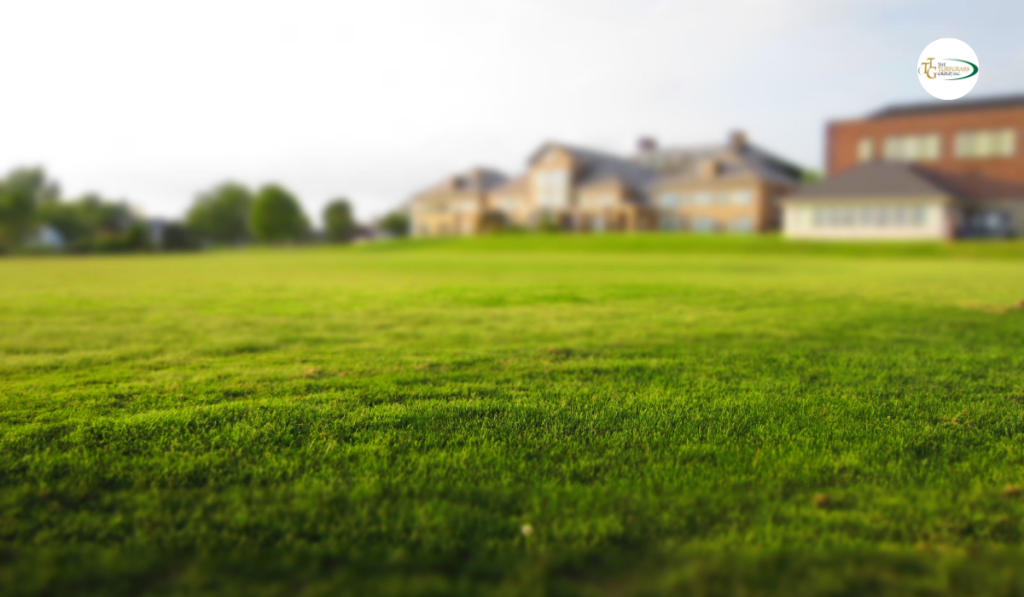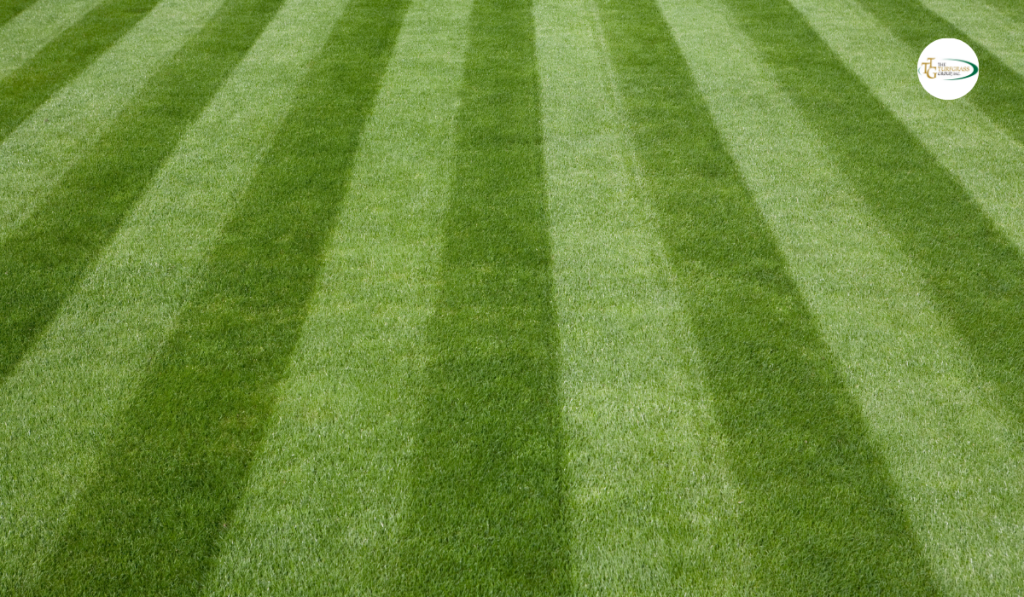
As the world faces increasing water scarcity and environmental concerns, TifTuf Bermudagrass provides a sustainable solution for landscaping, sports fields, and residential lawns with its exceptional drought tolerance and water efficiency.
One such solution is TifTuf® Bermudagrass, a turfgrass variety that has revolutionized how we think about lawn care and water management.
TifTuf® Bermuda is a grass that has the best drought tolerance and water efficiency, making it the best choice for homeowners, landscapers, and sports field managers.
This article will compare TifTuf® Bermudagrass with traditional grass types, focusing on water savings, performance, and overall benefits.
Introduction to TifTuf® Bermudagrass
TifTuf® Bermuda is a specially bred variety of Bermudagrass developed by the University of Georgia.
TifTuf® has consistently performed in water conservation and drought tolerance over 25 years of research and field trials.
It was explicitly bred to thrive in arid conditions, making it a more sustainable alternative to traditional turfgrass varieties.
TifTuf® is not just grass but an innovation that sets a new standard for water-efficient turf.
The most impressive feature of TifTuf® Bermudagrass is its ability to maintain its lush, green colour appearance while conserving water use.
This distinguishing feature has made it the first and only grass variety ever awarded the Smart Approved WaterMark, also known as Smart Drop Certified, to have an official certification based on its water-saving qualities.
But what makes TifTuf® so much more efficient than conventional grasses? Let’s see how it compares with traditional grass types regarding water use and overall performance.
Water Efficiency: A Differentiator
Perhaps the most crucial consideration for maintaining turfgrass relates to water usage.
Water-using grasses, such as conventional types like Kentucky Bluegrass, Fescue, and Ryegrass, absorb copious amounts of this life-giving element so that grasses stay vibrant, green, and lush and thrive in warmer climes.
This condition significantly poses severe water resource strain, particularly in regions hit by droughts or where saving water is an objective.
TifTuf® Bermudagrass’ Saving on Water
Water-Saving Stature TifTuf® Bermuda Grass is a singular crop in this regard.
Due to genetic uniqueness, it exhibits high levels of drought resistance and survives with up to 38% less water than commonly used Bermudagrasses.
This occurs because it has a root system that is more robust and effective for establishing immediately, thereby increasing deeper soil moisture intake.
One feature that makes TifTuf® stand out is that it can develop a robust root system within only 7 days after planting.
Its establishment rate is up to 75% faster than other grass varieties, meaning TifTuf® needs much less water to establish itself, making it an excellent option for regions experiencing limited rainfall.
Once established, the deep root system of TifTuf® enables it to survive with minimal irrigation, making it highly suitable for areas that experience water restrictions or need to reduce overall water consumption.
The Cost of Traditional Grass Types
Traditional grasses like Kentucky Bluegrass or Fescue require much more water to establish and maintain.
For instance, Kentucky Bluegrass is famous for its thick and dense growth, but it needs a lot of water to stay green during the hot summer months.
Ryegrass and Fescue also have moderate water requirements, so they are less water-conserving than TifTuf®.
In addition, the traditional grass types consume a lot of water for maintenance and upkeep of an attractive lawn or sports field, particularly when dry spells persist over many months.
This means a waste of water, apart from increasing the cost of water to homeowners and businesses.
Drought Tolerance: Performance in Harsh Conditions
The other significant area in which TifTuf® Bermudagrass excels is its drought tolerance.
Drought-tolerant grasses are essential for maintaining green, healthy turf during water scarcity, which is becoming increasingly familiar with climate change.
TifTuf® Performance under Drought Conditions
TifTuf® has been extensively tested in independent trials across the U.S. and has consistently outperformed other turfgrass varieties in drought conditions.
For this reason, TifTuf® is so valued: it maintains a healthy, green appearance even in the face of extended water deprivation.
Research has shown that TifTuf® can survive without irrigation for extended periods and rebound quickly when provided water.
What makes TifTuf® unique is that the water in the soil is retained way better than traditional grass.
It has been proven to need less frequent watering than other grass types and, simultaneously, an excellent resistance to extreme heat and drought, thus ensuring success under the most adverse climatic conditions.
The Plight of Traditional Grass Types
Traditional grass types, such as Kentucky Bluegrass, are much more susceptible to stress in drought conditions.
When deprived of water, these grasses tend to go dormant or turn brown, leaving lawns or sports fields unsightly and unhealthy.
Recovery from dormancy can take weeks; in some cases, the grass may not recover if the drought persists for too long.
Even though Fescue is more tolerant to dry conditions than Kentucky Bluegrass, it still needs a regular water supply to keep its appearance green, especially during scorching summer months.
Sustainability: Environmental Benefits for TifTuf®
As the concerns for environmental sustainability increase, many property owners are seeking ways to reduce their ecological footprint, especially in terms of water usage.
TifTuf® Bermudagrass saves water and reduces the carbon footprint associated with traditional lawn care.
Lower Water Consumption and Lower Carbon Footprint
TifTuf® Bermudagrass helps to alleviate the strain on local water systems by using less water than traditional grass types.
This is especially important in regions where water conservation is critical, such as drought-prone areas or where water restrictions are in place.
In addition, because TifTuf® requires less overall maintenance, fewer fertilizations and pesticide applications mean that the reduction in chemicals used and emissions from lawn care contributes to an overall saving in carbon usage.
Traditional grasses, however, usually need constant amounts of water, fertilizers, and pesticides to survive, causing further environmental harm.
Establishment and Maintenance Costs
When selecting turfgrass for a lawn, a sports field, or a landscape, establishment and maintenance costs must be considered.
Compared to standard grasses, TifTuf® Bermudagrass is established quickly, requires relatively less water, and conserves more funds in the long term.
Establishment and Maintenance of TifTuf® Bermudagrass
TifTuf®’s ability to establish a robust root system quickly requires less water and fewer resources during the establishment phase.
Once established, it is a low-maintenance grass that requires less frequent watering and fertilization.
TifTuf® also has a natural resistance to many pests and diseases, which reduces the need for chemical treatments.
This translates to lower maintenance costs and exceptionally high water prices.
Higher Costs of Traditional Grass Types
Traditional grass varieties are more expensive to establish and maintain.
Grass, such as Kentucky bluegrass, is lovely, but it consumes a lot of water when established and after that.
This increases the water bills and maintenance costs.

Such grasses are more vulnerable to pests and diseases, so more frequent applications of fertilizers and pesticides are needed to keep them healthy.
Overall Performance and Aesthetic Appeal
While water savings and drought tolerance are vital factors, you must also address the turfgrass’s aesthetic appeal and overall performance.
Most turfgrass users would love a plush green lawn or sports field for aesthetic or athletic performance.
The Plush Look of TifTuf® Bermudagrass
TifTuf® Bermudagrass features a lush, dense, and vibrant green appearance, even during dry spells.
Other drought-tolerant grasses often turn brown or dormant in the heat, but TifTuf® retains its green colour and thrives in full sun.
Its ability to maintain its visual appeal while using significantly less water makes it a preferred choice for homeowners, landscape architects, and sports field managers.
Aesthetic Limitations of Conventional Grasses
Classic grasses such as Kentucky Bluegrass and Fescue will need constant attention.
You may need to pamper them at times for an optimum look, particularly during high temperatures or a significant shortage of rainwater.
Aesthetically perfect, the grasses might look only during the ideal conditions, but they face trouble when the days come either too hot to face or there comes insufficient rain.
The grass grows disorganized, turns brownish or goes dormant, leaving everything rather unsightly, almost eye-pleasing lawn.
Conclusion: A New Era of Water-Efficient Turfgrass
TifTuf® Bermudagrass is, without a doubt, a game-changer in the turfgrass industry.
Its exceptional water-saving genetics, rapid root establishment, and overall drought tolerance make it the ideal solution for those looking to conserve water without compromising the beauty or performance of their turf.
Compared to traditional grass types, TifTuf® stands out as the more sustainable, cost-effective, and aesthetically appealing choice for various landscaping and sports field applications.
For homeowners, businesses, and municipalities looking to reduce their environmental impact, TifTuf® Bermudagrass is a sustainable, water-efficient solution that will save them money on water and reduce maintenance costs in the long run.
And in this world, there are brighter futures for landscaping and turfgrass management in general.
FAQs
What is TifTuf® Bermudagrass?
TifTuf® Bermudagrass is a drought-tolerant, water-efficient turfgrass variety developed by the University of Georgia. Breeders designed it for its exceptional ability to conserve water and thrive in dry conditions, making it a sustainable choice for lawns, sports fields, and landscapes.
How does TifTuf® save water compared to traditional grass types?
TifTuf® roots establish quickly and consume almost 38% less water than other grass varieties due to their robust root structure. It can establish as fast as in 7 days, 75% faster than other grass species, and after establishment, it consumes less water for the lush green appearance.
Is TifTuf® Bermudagrass drought tolerant?
Yes, TifTuf® is explicitly bred to withstand drought. It will remain green and healthy even in prolonged dry spells, whereas many traditional grass varieties may turn dormant or brown under the same conditions.
What are the advantages of using TifTuf® Bermudagrass for my lawn?
TifTuf® offers several benefits, including water conservation, faster establishment, lower maintenance costs, and a lush, green appearance even in hot or dry conditions. Its deep root system also helps it survive with minimal irrigation, making it an excellent option for water-restricted areas.
Is TifTuf® more expensive than traditional grass types?
Although TifTuf® seems more expensive to establish mainly because of its superior varieties, it will save a lot in the long run due to lower water and maintenance requirements. Lower water bills and saving chemicals and fertilizers counter the initial investment.
How fast does the TifTuf® settle?
TifTuf® develops a robust root system within 7 days, thus growing up to 75% faster than other grass varieties. This speedy establishment helps minimize water use and accelerates the time it takes for a lawn to become dense and healthy.
Can you plant TifTuf® Bermudagrass in all climates?
TifTuf® loves warm climates and is even very adaptable to areas with incredibly high temperatures and low levels of rainfall. It doesn’t fare well in the cold but does well where traditional cool-season grasses falter.
How does TifTuf® differ from other types of Bermudagrass?
TifTuf® differs from other Bermudagrass varieties as it has superior water-saving ability and drought tolerance. Independent tests have proven that it is more water-efficient, needing less irrigation to stay green and healthy. It is also the first grass variety to receive the Smart Approved WaterMark for its water-saving attributes.